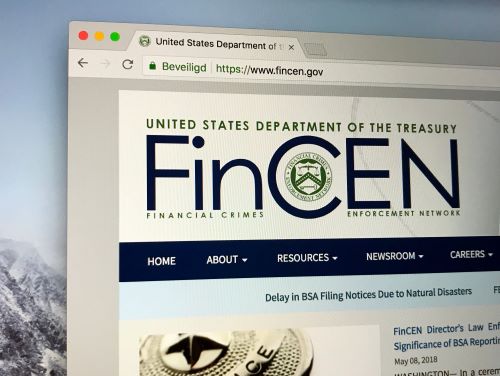A Guide to FinCEN Beneficial Ownership Reporting

In 2021, Congress passed the Corporate Transparency Act intending to fight and prevent money laundering, illegal financing activities, corruption, and tax fraud. To achieve its goals, the legislation authorizes the collection of certain information for most U.S.-based businesses and organizations. This Beneficial Ownership Information (BOI) will be reported to the Financial Crimes Enforcement Network (FinCEN), a part of the Department of the Treasury. BOI includes any identifying information about the individuals who own or control a business, either through direct or indirect means. Companies are required to report starting January 1, 2024. To help clients, prospects, and others, Klatzkin has provided a summary of the key details below.
What is the Corporate Transparency Act?
As mentioned above, it is legislation designed to fight money laundering, tax fraud, and more. It created a mandatory requirement for certain U.S. businesses to report Beneficial Ownership Information (BOI). This reporting will allow FinCEN to collect identifying information on those who control, either directly or indirectly, a company or organization.
What is a Reporting Company?
In general, there are two types of reporting companies – domestic and foreign. Domestic reporting companies include corporations, LLCs, and other entities that were formed after filing a document with a secretary of state or a similar governing body in the United States. Foreign reporting companies are registered to conduct business in the United States through a similar filing. Not all are required to report. In fact, 23 types of entities are exempt, including banks, governmental authorities, insurance companies, some accountants, and large operating companies. Most exemptions are permitted because these entities must meet similar reporting requirements.
Who Qualifies as a Beneficial Owner?
Beneficial company owners are defined as those who have either “substantial control” or own at least 25% of a company. Substantial control can be determined through various indicators, such as through a senior officer’s position, the ability to remove or appoint officers or by holding a role as a key decision-maker, or other markers.
Because beneficial ownership is connected to individuals only, companies that serve as intermediaries are not considered beneficial owners. These owners need to be reported only if they are designated as such at the time the report is being filed. If there are changes after filing, entities should notify FinCEN about the update. Changes such as new business names, changes in beneficial owners, or individual addresses should be submitted as well.
E-Filing with FinCEN
On January 1, 2024, FinCEN went live with an e-filing system for BOI. Companies established before that date have until January 1, 2025, to file, while new reporting companies will need to file within 90 calendar days of receiving notice that their creation is effective. The original filing is a one-time activity. Companies only need to resubmit a report if there is a change in beneficial ownership or if there are other updates that are required to be reported.
Reporting companies registered or created on or after January 1, 2025, that are required to register will have to do so within 30 days.
For new companies, the date of registration or creation is the earlier of these two dates:
- The company receives notice of its registration or creation coming into effect.
- A secretary of state or similar authority gives public notice of the filing, through something such as a registry that is accessible to the public.
Individuals and reporting companies can also apply for a FinCEN identifier. This is a 12-digit number that can replace personal information on beneficial ownership information reports. The FinCEN identifier is not required.
What are the Reporting Requirements?
Each beneficial owner will provide their name, date of birth, address, and copy of their ID in the BOI report. The ID can’t be expired and should be either a U.S. passport, U.S. driver’s license, or other form of identification issued by local, state, or tribal entities. If these forms of identification are not available, a non-expired foreign passport may also be used.
Businesses need to provide a legal name, tax ID, business address, and the jurisdiction where the business was founded. Any trade names should also be included (e.g. dba). A P.O. box cannot be used as a business address.
Parent companies cannot file one BOI report for the group. Each company that meets the requirements needs to file its own report.
Who Has Access to the BOI?
The main goal behind BOI reporting requirements has to do with transparency. However, BOI isn’t publicly available. It may be provided to some organizations in certain circumstances, including regulatory bodies, legal authorities, and financial institutions.
What Happens if Businesses Don’t Report?
Businesses that fail to comply are subject to fines of up to $500 per violation, per day. Violators may also be subject to up to two years of imprisonment as well. A safe harbor is available for entities that correct false reports within 90 days.
Contact Us
Compliance with the new reporting requirement is essential to avoid fines and penalties. For this reason, it is important to consult with qualified legal counsel to assess your situation and determine the best way to proceed. If you have questions about the information outlined above or need assistance with a tax or accounting issue, Klatzkin can help. For additional information call 609-890-9189 or click here to contact us. We look forward to speaking with you soon.
